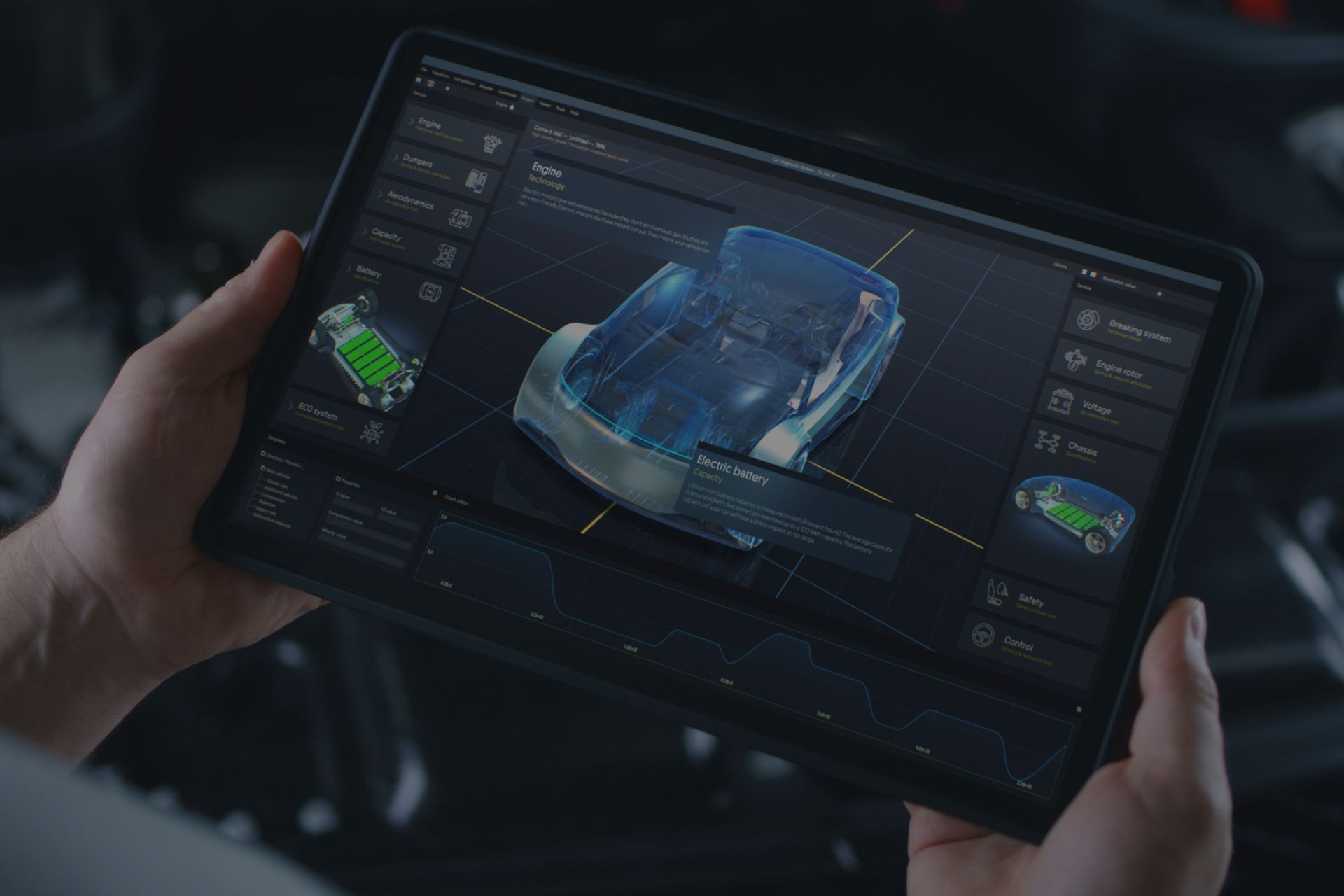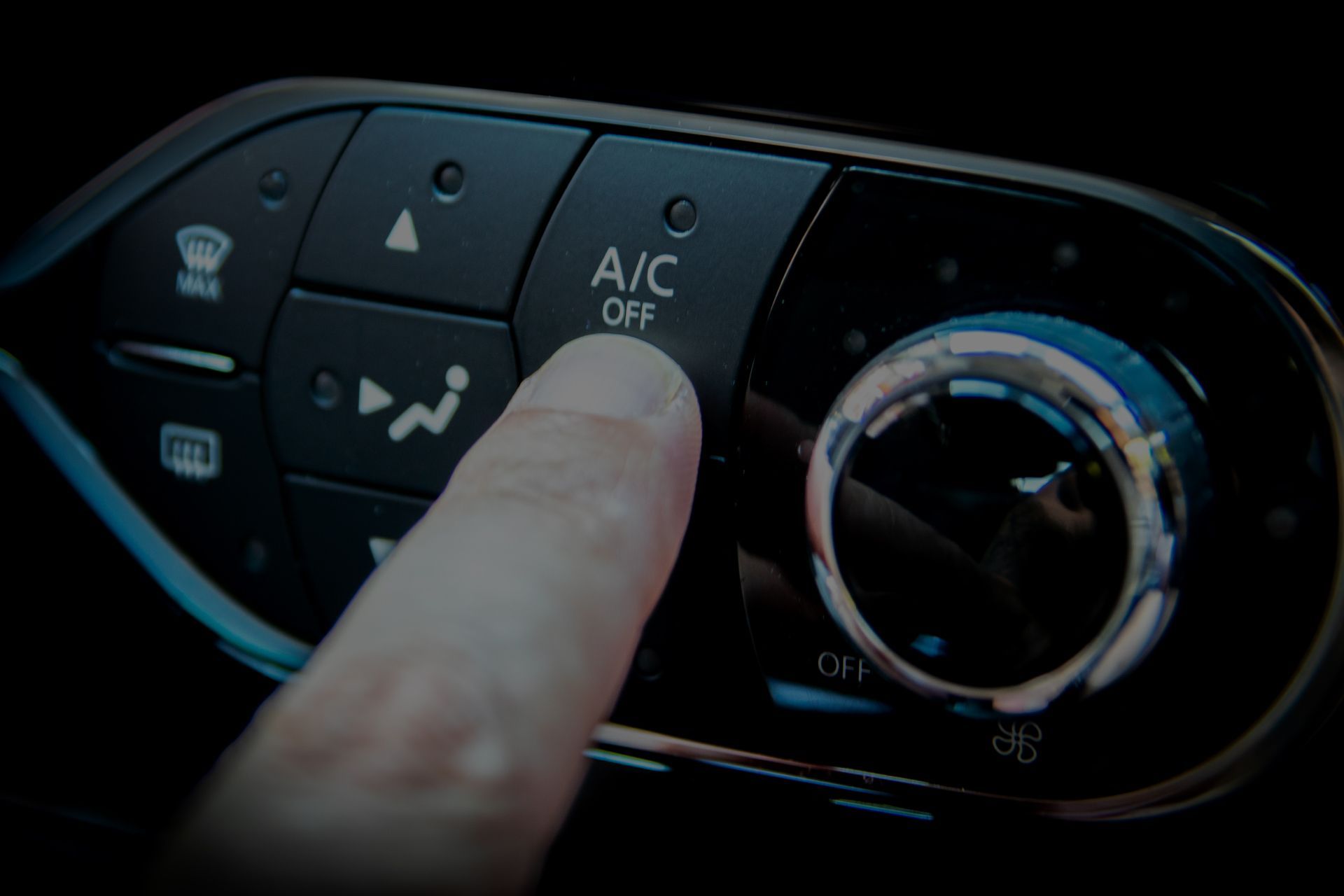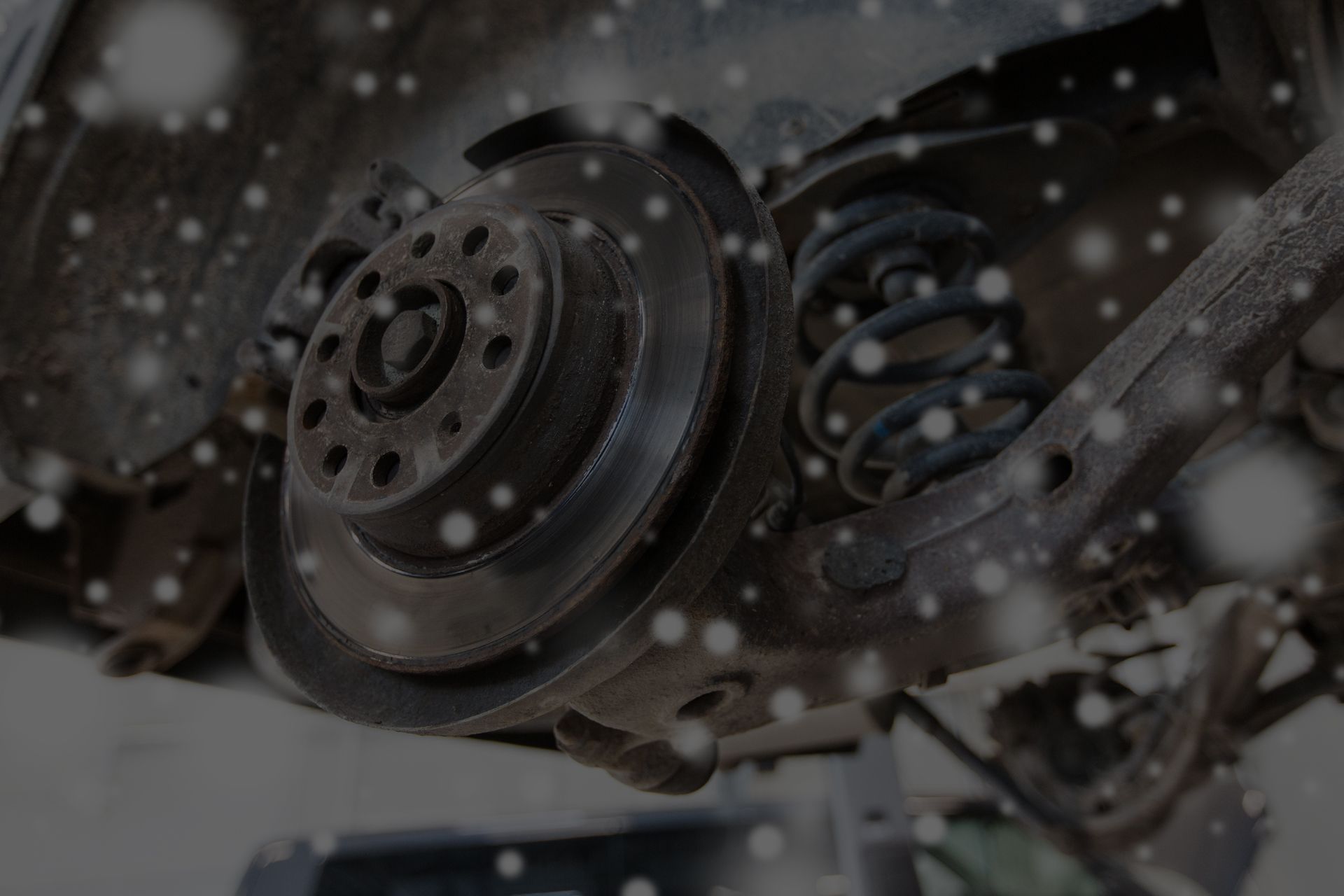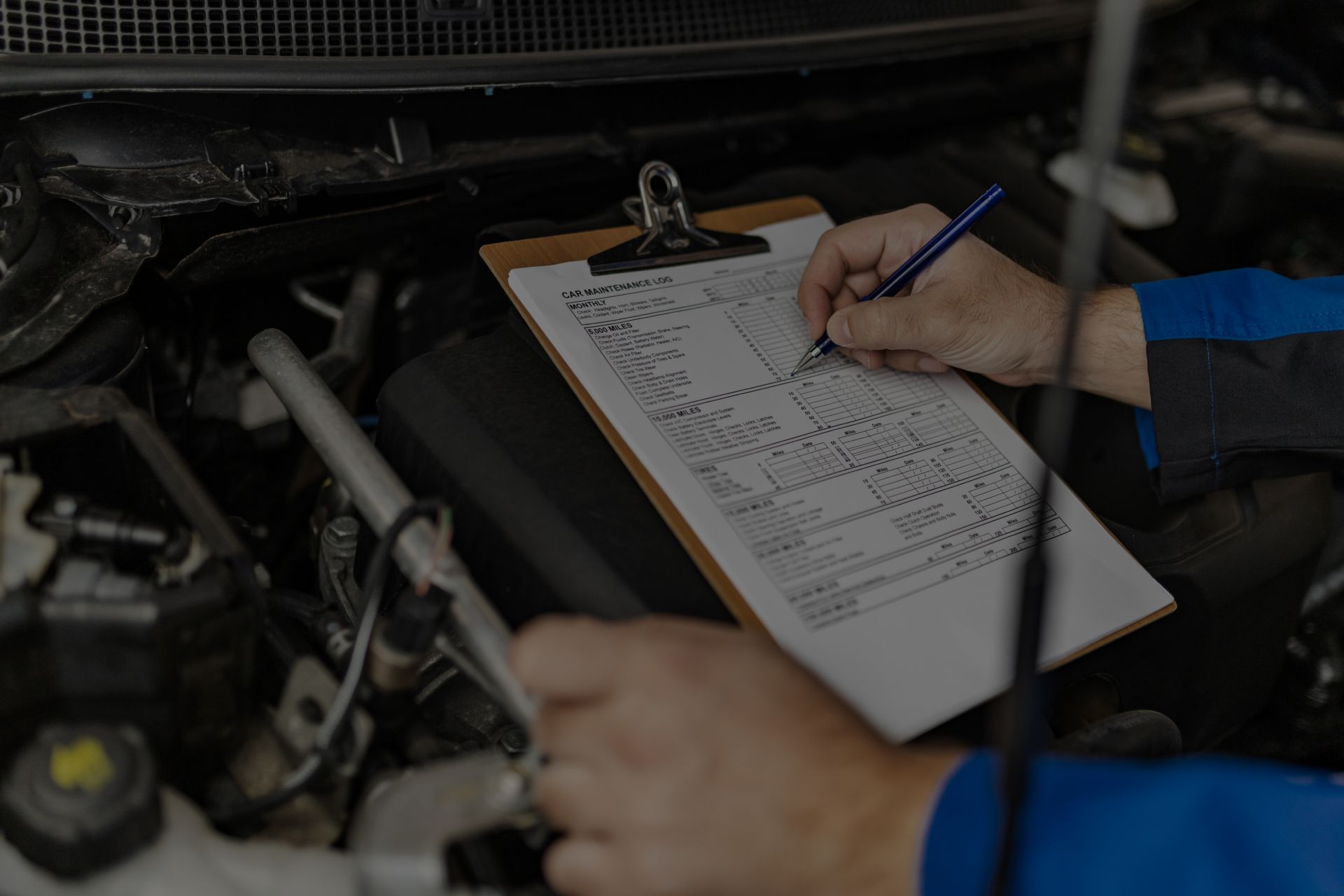Late summer in Colorado means one last chance to hit the road before fall arrives. Whether you're planning a weekend trip to Estes Park, heading to Vail for some mountain air, or driving to Grand Junction for a family visit, your tires are about to face some serious challenges.
Denver's unique location puts extra demands on your tires. From the steep grades heading up to Georgetown to the long stretches of I-76 toward Nebraska, Colorado driving tests your tires in ways that flat-land driving never could. Add in our intense summer heat, sudden elevation changes, and the possibility of afternoon thunderstorms, and you've got conditions that can quickly turn a fun road trip into a roadside emergency.
Check Your Tire Pressure Before Every Trip
Colorado's elevation changes wreak havoc on tire pressure. For every 1,000 feet you climb, your tire pressure drops about 2 PSI. That means driving from Denver to Breckenridge (a 4,000-foot climb) can drop your tire pressure by 8 PSI or more.
Underinflated tires generate extra heat, especially on long highway stretches like the drive to Colorado Springs or Fort Collins. In late summer heat, this combination can lead to dangerous blowouts. Check your tire pressure when your tires are cold, preferably before you leave your driveway in the morning.
Don't rely on your car's tire pressure monitoring system alone. These systems often don't alert you until pressure drops 25% or more below recommended levels – far too late for optimal performance and safety.
Inspect for Summer Heat Damage
Denver's intense UV rays and hot pavement take a toll on rubber compounds. Late summer is prime time for heat-related tire damage to show up. Look carefully at your tire sidewalls for:
- Small cracks or splits in the rubber
- Bulges or bubbles that indicate internal damage
- Uneven wear patterns
- Foreign objects like nails or screws
Pay special attention if your car regularly parks outside at places like Coors Field during Rockies games or at the Denver Tech Center during long work days. Concrete and asphalt can reach temperatures over 140 degrees, literally cooking your tires.
Rotate Your Tires Before Long Drives
Front tires handle steering and often braking, while rear tires deal with acceleration forces. This creates uneven wear patterns that become more pronounced during hot weather driving. A quick tire rotation before your road trip to Aspen or Durango can prevent uneven wear from becoming a safety issue.
Most tire experts recommend rotation every 5,000 to 7,500 miles, but Colorado's steep grades and temperature extremes can accelerate wear. If it's been more than 6 months since your last rotation, don't risk it on mountain highways.
Check Your Spare Tire Too
Nothing ruins a trip to Rocky Mountain National Park like discovering your spare tire is flat when you need it most. Spare tires lose pressure over time, and Denver's dry climate accelerates this process. Many drivers haven't checked their spare tire pressure in years.
Remember that temporary spare tires (often called "donuts") have speed and distance limitations. They're not designed for the long hauls common in Colorado, where the nearest tire shop might be 50 miles away. If you're planning an extended road trip to places like Mesa Verde or Great Sand Dunes, consider carrying a full-size spare or at least know where tire services are available along your route.
Watch for Tread Depth Issues
Colorado's mountain highways demand good traction, especially if you encounter unexpected weather. The penny test is simple but effective: stick a penny into your tire tread with Lincoln's head down. If you can see the top of Lincoln's head, your tires need replacement before you tackle mountain passes.
Worn tires are especially dangerous on steep descents like the drive down from Vail Pass or Eisenhower Tunnel. Good tread depth helps your brakes work effectively and prevents dangerous skidding on mountain curves.
Plan for Temperature Changes
A road trip from Denver to Steamboat Springs can involve temperature swings of 30 degrees or more. These changes affect tire pressure and performance. Pack a portable tire pressure gauge and small air compressor for longer trips. Many gas stations along I-70 and other Colorado highways have air pumps, but they're not always working when you need them.
Consider the time of day you'll be driving too. Early morning mountain drives mean cold tire pressure, while afternoon drives mean expanded, higher-pressure tires.
Don't Ignore Warning Signs
Your tires communicate problems before they become emergencies. Vibration while driving could indicate tire imbalance or damage. Pulling to one side might mean uneven tire pressure or alignment issues. Unusual noise from your tires often signals uneven wear or damage.
These problems become more dangerous at highway speeds and on mountain grades. Address them before your trip, not during it.
Prepare for Colorado's Unique Challenges
Late summer road trips often mean carrying extra gear – camping equipment, bikes, or luggage for extended stays. This extra weight puts additional stress on your tires and increases heat buildup. Make sure your tire pressure accounts for the extra load.
Also consider that many Colorado destinations involve gravel roads or rough pavement. Places like some campgrounds near Glenwood Springs or remote hiking trailheads can be tough on tires that aren't in top condition.
Get Your Tires Road-Trip Ready in Denver
Don't let tire troubles cut short your late summer Colorado adventures. Whether you're heading to a Broncos preseason game, exploring the Western Slope, or visiting family in Pueblo, properly maintained tires are essential for safe travels.
At ImportSports Performance, we've been helping Denver drivers prepare for Colorado road trips since 1997. Our ASE Certified technicians know exactly what your tires face on Colorado roads, from city driving to mountain passes.
Planning a late summer road trip? Call ImportSports Performance at (303) 752-2422
for a comprehensive tire inspection. We'll check your tire pressure, tread depth, and overall condition to make sure you're ready for whatever Colorado throws at you. Don't let tire problems ruin your adventure – schedule your tire service today.






